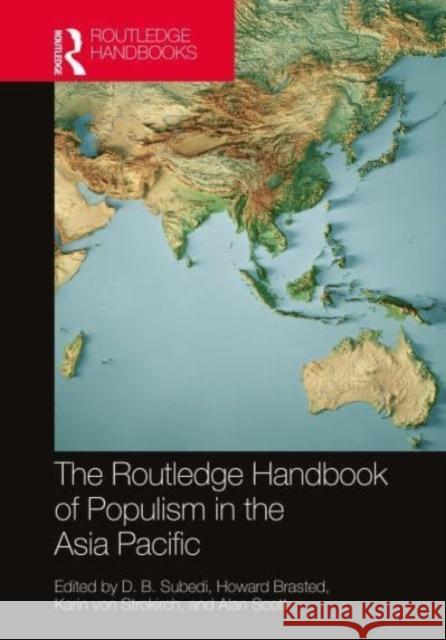The Routledge Handbook of Populisms in Asia Pacific » książka
The Routledge Handbook of Populisms in Asia Pacific
ISBN-13: 9780367701857 / Angielski
The Routledge Handbook of Populisms in Asia Pacific
ISBN-13: 9780367701857 / Angielski
(netto: 1142,80 VAT: 5%)
Najniższa cena z 30 dni: 1083,03
ok. 16-18 dni roboczych.
Darmowa dostawa!
This handbook brings national and thematic case studies together to examine a variety of populist politics from local and comparative perspectives in the Asia Pacific. The chapters consider key and cross cutting themes such as populism and nationalism, religion, ethnicity and gender, as well as authoritarianism.
This handbook brings national and thematic case studies together to examine a variety of populist politics from local and comparative perspectives in the Asia Pacific. The chapters consider key and cross cutting themes such as populism and nationalism, religion, ethnicity and gender, as well as authoritarianism. They show how populist politics alters the way governments mediate state-society relations.
The essays in this volume consider:
— diverse approaches in populist politics, for example, post-colonial, strategic vs ideational, growth and redistribution, leadership styles, and in what ways they are similar to, or different from, populist discourses in Europe and the USA;
—under what social, political, economic and structural conditions populist politics has emerged in the Asia-Pacific region;
—national case studies drawn from South and Southeast as well as the Pacific analyzing themes such as media, religion, Islam, gender, medical populism, corruption and cronyism, and inclusive vs exclusive forms of populist politics;
—modes and techniques of social and political mobilization that populist politicians employ to influence people and their impact on the way democracy is conceived and practiced in the Asia Pacific.
As a systematic account of populist ideologies, strategies, leaders and trends in the Asia Pacific, this handbook is essential reading for scholars of area studies, especially in the Asia Pacific, politics and international relations, and political and social theory.











